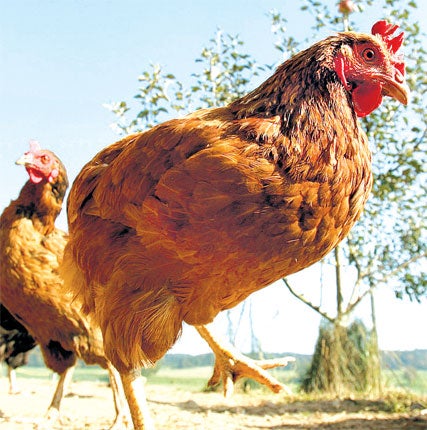Brian Viner: With age, you learn to use your loaf

Our 21st-century world is, in so many ways, mystifying for the elderly. Online banking, eBay, Twitter, sat-nav, congestion charges, flat-pack furniture, they can at least avoid. But making a routine telephone inquiry and having to press 1 for this, 2 for that, and 3 for the other, or being connected to a call-centre in Delhi and struggling to make themselves understood, must seem like a discombobulation too far.
Of course, some old people embrace these modern so-called conveniences. But far more of them, whether in the high street newly stripped of its post office, or the home where the television has just gone interactive, must sometimes feel plain alienated, as if this is no longer quite their world.
Waiting to be served in our local bakery earlier this week, however, the thought struck me like a clout from my headmaster (nostalgia can be painful as well as pleasurable) that it's possible to be too young to understand the world, as well as too old. I don't mean too young as in three, or seven, or 11, I mean too young as in 49. In some everyday situations, it's easier to be 77 or 82 or even 91.
What sparked this realisation was an exchange between a tiny, rosy-cheeked old lady at the head of the queue, and the female shop assistant. "I'll have a cob and a bloomer, dear," said the old lady, and it occurred to me that I had not the slightest idea as to what distinguishes a cob from a bloomer, or, for that matter, a batch-tin from a split-top, or a cottage from a farmhouse. All I know is that they are all types of loaf, baked and sold at the Central Bakery in Leominster, Herefordshire, and that every customer over the age of about 65 seems to have an innate understanding of the differences between them, not to mention the contrasting joys of wholemeal, wheatmeal and malt crunch.
It is my fervent hope that I will absorb this useful knowledge (far more practical than being Twitter-literate), perhaps by some sort of osmosis, on the eve of my 65th birthday. That, rather like Harry Enfield's character Kevin, who woke up moody and obstreperous on the day he turned 13, I will step out of bed on an October morning in 2026 knowing, at last, my long sandwich from my ring. With any luck, the Central Bakery will still be there, to accommodate another late bloomer, though certainly not, as I will be able to tell them, a late cob.
In the meantime, I have noticed a similar phenomenon at the fishmonger and the butcher's. There too, as a general rule, the senior citizenry seem able to name dozens of species of fish, and cuts of meat, in a way that we in life's late summer, rather than its mid-winter, simply cannot. Nor is their superior savoir faire restricted only to foodstuffs. "In this world nothing can be said to be certain, except death and taxes," wrote Benjamin Franklin in 1789, and that being the case, the elderly, having in their long lives suffered many more tax rises and seen much more death than the merely middle-aged, have a significantly stronger grip on life's certainties than the rest of us, whether or not they know how to surf the internet. It's amazing what revelations come to you in a bakery queue, moments before you make the unworldly request for a large wholemeal, thick-sliced.
Why we don't do cocktail parties in the country
The city, being full of people, and people being full of quirks, must by definition be a quirkier place to live than the country. But, almost nine years after we came to live in the sticks, that's not how it seems. On Wednesday, for example, our friendly postman delivered, along with a bank statement, a water bill and a mail-order catalogue, two clucking chickens.
This, I dare say, is a situation peculiar only to this little corner of the Welsh Marches, where the neighbourhood postman happens to breed poultry at his smallholding just over the hill, and will, over a natter on the back doorstep, agree to bring a couple of reliable layers the following day. But it still seemed to me, as I carried the Warrens out to meet the eight hens we already had, like one of the more pleasing perks of our rural existence.
I introduced them at dusk, incidentally, for new arrivals invariably get bullied, and a night's roosting at least gives them a chance to settle in. But you can, as a transplanted townie, take these things too far. My wife, on acquiring four Black Rocks from a Welsh hill farm a year after we'd arrived, asked the farmer how she should handle their integration into the existing flock. "Oh, I shouldn't think it will be too much of a problem," he said, which was kind of him, because if he'd kept a sufficiently straight face and suggested a cocktail party, she would doubtless have stopped to buy napkins on the way home.
To be continued: irritating episodes in modern life
It isn't healthy to fall too much in thrall to fiction, but I don't mind admitting that my heart lurched when I read on Wednesday that the next series of the peerless Mad Men is not to be transmitted until next year, when we'd been expecting it this summer. It's another way in which the manifold pleasures of modern life can backfire. The first readers of The Pickwick Papers, similarly breathless for the next instalment, never had to wait longer than a month.
b.viner@independent.co.uk
Join our commenting forum
Join thought-provoking conversations, follow other Independent readers and see their replies
Comments
Bookmark popover
Removed from bookmarks